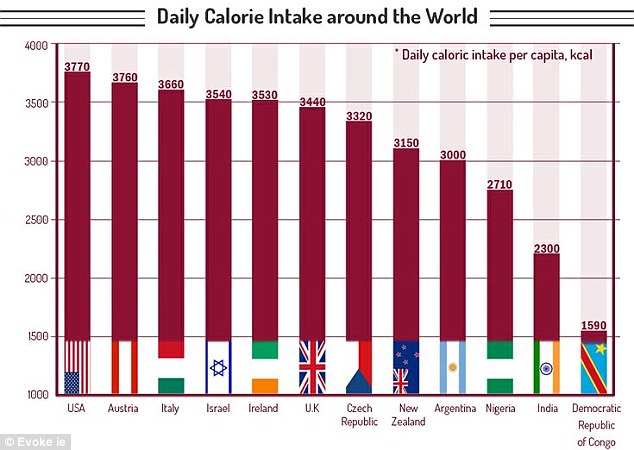
If you are attending a holiday party, ask beforehand what the food will be. If you cannot bring your own dish, gather some healthy recipes to share. Holiday meals are often served buffet-style. This means that there are many choices and you may end up eating more food than you would normally. Serving yourself more can lead to extra calories, which adds up over time. You can avoid holiday weight gain by bringing your favorite dish or making a healthy recipe that you can prepare ahead.
Obesity
Researchers are paying more attention now to holiday weight gain due obesity. This 1999 study measured changes in body weight between 26 healthy volunteers. The subjects were followed by the researchers from December 18th to Dec 21st and then again around Jan 4th. The researchers found an average increase of 0.9 kilograms in body weight between the two groups. Although this does not necessarily indicate an increase or decrease in obesity, it does indicate that holiday weight gained is more likely.

Stress
Stress can cause holiday weight gain, as you've likely heard. Holiday season brings with itself a multitude of responsibilities. It also triggers weight growth by increasing cortisol levels, a stress hormone. Holiday stress can make it more difficult to resist sugary and processed foods, leading to an increase in your desire for them. But if you can't say no to holiday obligations, there are some strategies you can use to avoid this problem. A good strategy is to limit your holiday desserts and appetizers, and to eat healthy breakfasts and snacks the days before the big meal. Moreover, if you have to attend a dinner party, wait 15 minutes before getting up for a second helping, which will help you digest the meal.
Diet mentality
There is no way to avoid holiday overeating, but it is possible to have the right mindset and not gain weight. You don't have to eat all the goodies you see. Although holidays are not for everyone, it is possible to enjoy the sweet treats that you choose without feeling guilty. You can avoid holiday weight gain by not thinking about your health and weight. Here are some tips to help you have fun and lose weight without feeling guilty.
Exercise
If you have a big holiday dinner coming up, exercise can be the solution to your excess holiday weight gain. While exercising can help you lose thousands of calories and reduce your fat gain, it can also help you stay on track with your exercise program. Exercise will help you to forget food and make you feel happier. Besides, it will be fun to spend time with your family while burning calories. You'll be more likely than ever to resist the temptation of eating all the delicious holiday foods.
Portion control
Holidays are a great time to overeat. To help you control your weight, you might want portion control. By eating smaller meals and enjoying your holiday foods more slowly, you can avoid overeating and feel satisfied with your choices. For the best taste, wait 10-20 min between each course. Avoid skipping meals on holidays. Consider bringing an appetizer or lighter dessert to share with friends and family to add to the holiday festivities.

Stress reduction
Chronic stress can also lead to weight gain in the holiday season. Studies have shown that chronic stress is one of the major contributors to holiday weight gain, as well as to weight gain throughout the entire year. Mary Teruel (assistant professor of chemical and systems biological at Stanford University School of Medicine), found that people who experience stress often gain the most weight around holidays. The production of fat was minimal when stress was experienced for a short time at the beginning of stressful situations. However, over 48 hours, stress produced most fat cells.
FAQ
What Amount Of Exercise Is Needed For Weight Loss?
The amount of exercise needed for weight loss depends on several factors, including age, gender, body type, and how much you weigh. Most people require moderate activity at least five days per week.
The American College of Sports Medicine recommends 150 minutes of moderate-intensity aerobic activity each week, spread over three days.
You can lose 10 pounds by doing 300 minutes of moderate-intensity exercises each week, for example. This includes activities like jogging or running, swimming laps and biking.
For those just starting out, you might consider 20 minutes of vigorous activity every other week. These activities could include sprints and lifting weights.
Aerobic exercise is a great way to burn calories and build muscle mass. Muscles burn more calories than fat. You may be able to achieve your goal quicker by building muscle and losing fat.
What Amount of Weight Can You Lose In A Week?
The amount of weight that you can lose will depend on how high your body fat percentage is. You need to determine how much weight loss you are looking for. Your BMI is a measure of how much weight you need to lose. If your BMI is 25 or greater, you're overweight. If your BMI is more than 30, you are obese.
For example, if 200 pounds is your BMI, it would be 28.7. To drop to a healthy range of weight, you will need to lose approximately 70 pounds. To see if you're overweight, visit www.healthyminds.com/bmi/.
Once you know your BMI, this formula will allow you to determine how many pounds per week you'll be able to lose.
(Your Goal Weight - Current Weight)/BMI * 7 Number Of Pounds Lost Per Week
To lose 50 pounds in a month, you would need to exercise for 2 weeks. That's 56 days divided by 7 pounds per day. That works out to 8.3 pounds lost per week.
You could also try this calculator from www.weightlosscalculator.net. It will give you an approximate estimate of the calories you need to lose 1 pound each week.
What can I eat in the morning while intermittently fasting
Water should be consumed first thing in the AM. It helps you feel full faster and gives you energy throughout the day. You can add lemon juice or cucumber slices to enhance the flavor.
What is the difference between intermittent fasting or calorie restriction?
Calorie restriction is a way to eat less than your body needs. Intermittent Fasting is different in that it doesn't restrict calories. Intermittent fasting focuses more on eating fewer calories every day.
Intermittent fasting can be more effective as it allows you to eat the foods you love and not feel guilty.
Both methods have their merits and weaknesses. You will need to decide which method is best for you.
How long does it take to lose weight?
It takes time to lose weight. It usually takes six months for you to lose 10%.
Remember that you should not expect to lose weight in a matter of hours. Your body will take time to adjust to changes in diet.
This means you need to gradually alter your diet over several weeks or days.
Fad diets don't work and you should get off them. Instead, try to change your daily routine.
If you are a regular shopper of unhealthy snacks, it is a good idea to stop.
Eat healthier meals earlier in evening. You'll be able to eat healthier meals earlier in the evening, and you won't snack later at night.
It is important to drink lots of water throughout the day. Water helps keep your body hydrated, and prevents you from becoming dehydrated. Dehydration can make you feel tired and weak.
Therefore, drinking lots of water throughout the day will help you stay energized and focused.
Relaxing activities can help reduce stress. For instance, you could spend some quality time with loved ones.
You could also read books or watch movies, or listen to music.
These activities can help you to unwind after stressful situations. They will also improve your mood, self-esteem, and overall well-being.
You should consider your health when trying to lose weight.
Your physical fitness is an indicator of overall health. If you are looking to improve your physical fitness, it is important that you eat well and do regular exercise.
Statistics
- A 12-week study in 20 women with obesity found that walking for 50–70 minutes 3 times per week reduced body fat and waist circumference by an average of 1.5% and 1.1 inches (2.8 cm), respectively (healthline.com)
- One 6-month study showed that simply doing 11 minutes of strength-based exercises 3 times per week resulted in a 7.4% increase in metabolic rate, on average. (healthline.com)
- According to a study sponsored by the American Council on Exercise, a person weighing around 140 pounds (64 kg) would burn 108 calories at a 30-minute beginner's Pilates class or 168 calories at an advanced class of the same duration (26). (healthline.com)
- According to Harvard Health, it's estimated that a 155-pound (70-kg) person burns roughly 112 calories per 30 minutes of weight training (5). (healthline.com)
External Links
How To
How to lose weight fast
There are many quick ways to lose weight. However, most people find them to be ineffective and unsustainable. Dieting and exercising are the best ways to lose weight quickly. You should eat fewer calories than you burn daily. This means you should consume fewer calories each day than what your body burns during daily activities. To lose weight quickly, you need to reduce your calorie intake.
Foods high in sugar and fat should be avoided as they will increase your appetite. You should also drink lots of water every day. It helps keep you hydrated and keeps your metabolism running at its peak. Combining these three elements together will give you results faster than you thought possible.